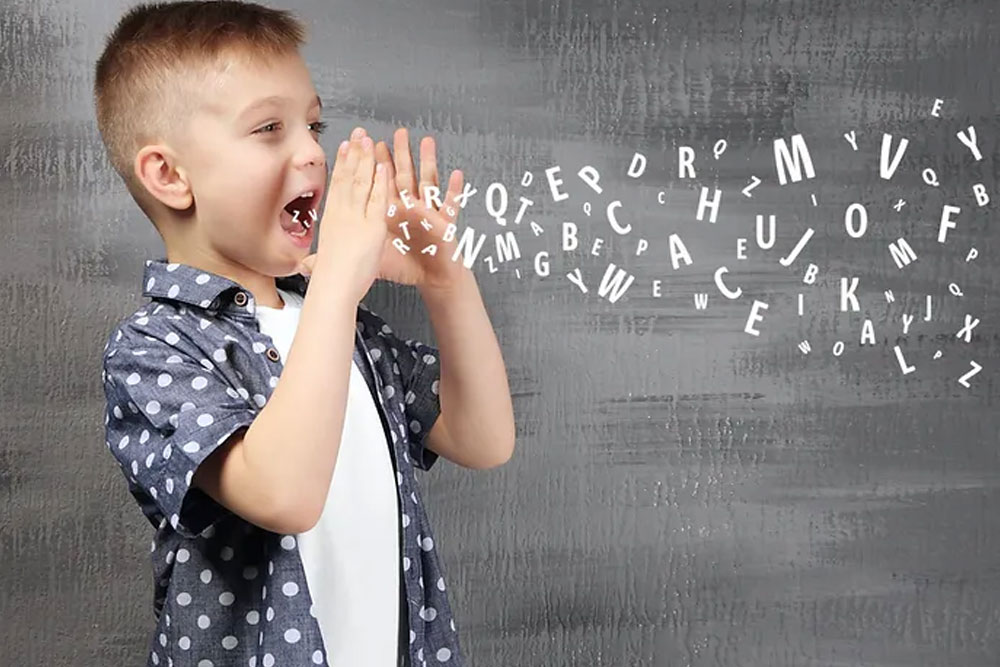Mixed Receptive-Expressive Language Disorder is a communication disorder that affects both understanding (receptive skills) and producing language (expressive skills). It is more common in children but can persist into adulthood if untreated. This condition can impact an individual's social interactions, academic performance, and overall communication abilities.s
Key Features
- Receptive Language Deficits: Difficulty understanding spoken or written language.
- Expressive Language Deficits: Difficulty forming sentences, using vocabulary, or speaking fluently.
Causes of Mixed Receptive-Expressive Language Disorder:
1. Neurological Factors:
- Abnormalities in brain development.
- Brain injury or trauma.
2. Genetic Predisposition:
- Family history of language disorders or learning disabilities.
3. Developmental Delays:
- Associated with other conditions like autism spectrum disorder (ASD) or intellectual disabilities.
4. Environmental Factors:
- Lack of language stimulation during early childhood.
- Chronic ear infections affecting hearing.
5. Other Causes:
- Premature birth or low birth weight.
- Prenatal exposure to toxins, alcohol, or drugs.
Symptoms of Mixed Receptive Expressive Language Disorder
Receptive Symptoms (Understanding Language):
- Difficulty following instructions.
- Trouble understanding complex sentences or questions.
- Limited understanding of vocabulary.
- Problems with processing verbal or written information.
Expressive Symptoms (Producing Language):
- Limited vocabulary or word-finding difficulties.
- Grammar issues (e.g., wrong tense or word order).
- Difficulty forming complete sentences.
- Pauses or hesitation while speaking.
- Substituting or omitting words.
Complications
- Social Challenges: Difficulty forming and maintaining relationships.
- Academic Struggles: Poor performance in language-heavy subjects.
- Emotional Impact: Low self-esteem, frustration, and anxiety.
Diagnosis methods
1. Developmental History:
Gathering detailed information about the child's milestones and communication abilities.
2. Language Assessments:
Standardized tests to evaluate both receptive and expressive language skills.
3. Hearing Tests:
To rule out hearing impairments as a contributing factor.
4. Neuropsychological Evaluation:
Identifies underlying cognitive or neurological conditions.
5. Observation and Parent/Teacher Feedback:
Input from caregivers and educators about the child’s communication abilities.
Language Therapy for Mixed Receptive Expressive Language Disorder
1. Speech and Language Therapy:
- Focuses on improving receptive and expressive skills through structured exercises.
- Techniques include vocabulary building, sentence structuring, and comprehension tasks.
2. Play-Based Therapy:
- Engages young children using games and interactive activities to improve language skills.
3. Augmentative and Alternative Communication (AAC):
- For severe cases, using tools like picture boards, apps, or devices to support communication.
4. Parental Involvement:
- Encouraging language-rich environments at home.
- Reading to the child and engaging in conversational activities.
5. Educational Support:
- Tailored interventions in school, including individualized education plans (IEPs).
Ayurvedic Perspective:
In Ayurveda, language disorders can be linked to imbalances in Vata Dosha, which governs the nervous system, communication, and cognitive functions. An imbalance in Prana Vayu (a sub-dosha of Vata) can disrupt speech and comprehension. Accumulation of Ama (toxins) and improper functioning of Srotas (channels) responsible for mental and sensory activities are also significant contributors.
Panchakarma Therapies
- Nasya (Nasal Therapy): Administering medicated oils like Brahmi Ghrita through the nose to stimulate brain functions.
- Abhyanga (Oil Massage): Full-body massage with medicated oils to balance Vata and promote relaxation.
- Shirodhara: Pouring medicated oil on the forehead to calm the mind and enhance concentration.
Ayurvedic Formulations
- Saraswatarishta: Improves memory and speech.
- Medhya Rasayana: A combination of herbs that enhance mental clarity.
- Chyawanprash: Strengthens immunity and supports neurological health.
Herbal Remedies
Brahmi (Bacopa monnieri):
Enhances cognitive functions and memory.
Shankhpushpi (Convolvulus pluricaulis):
Calms the mind and improves speech and comprehension.
Vacha (Acorus calamus):
Known as the "speech herb," it enhances vocal clarity and communication.
Ashwagandha (Withania somnifera):
Strengthens the nervous system and reduces anxiety.
Mandukaparni (Centella asiatica):
Strengthens the nervous system and reduces anxiety.
Diet
- Include brain-nourishing foods like almonds, walnuts, ghee, and milk.
- Avoid processed, cold, and Vata-aggravating foods.
Lifestyle
- Establish a routine for meals, sleep, and learning activities.
- Engage in calming activities like yoga and meditation.
To conclude, Mixed Receptive-Expressive Language Disorder is a complex condition that can significantly impact an individual's communication abilities. Early diagnosis and intervention are crucial for better outcomes. Ayurveda offers a holistic approach by addressing the root cause, balancing doshas, and strengthening cognitive and neurological functions. Integrating Ayurvedic therapies with modern language therapy can provide comprehensive support.








